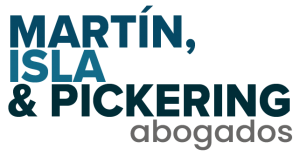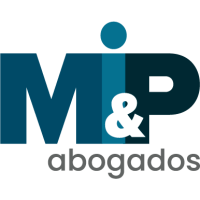Comments
The rules 2.7.7.1., 2.7.7.2., 2.7.7.3., 2.7.7.4., 2.7.7.5., 2.7.7.6., 2.7.7.7. y 2.7.7.8. of the MTR for 2022
did not suffer any substantial changes or modifications with respect to rules 2.7.1.9., 2.7.1.51., 2.7.1.52., 2.7.1.53., 2.7.1.54., 2.7.1.55., 2.7.1.56. and 2.7.1.57. of the Third Amendments Resolution to the MTR for 2021; however, rules 2.7.7.9., 2.7.7.10, 2.7.7.11. and 2.7.7.12. of the MTR for 2022 are new, which essentially establish the following:
The rule 2.7.7.9. indicates that those who provide the cargo transportation service and the owners of cargo vehicles, whether they are residents abroad or incorporated in accordance with foreign law and do not have a permanent establishment in national territory, may cover the transportation of domestic goods and/or goods of foreign origin in national territory with: (i) the customs documentation that proves their legal importation, or that proves their lawful tenure, transportation or handling, (ii) the sales note issued by the federal tax authority or institution authorized by it, and (iii) the e-invoice.
The rule 2.7.7.10. highlights that companies residing in national territory that provide the international transport service of general and specialized cargo of national or nationalized goods for export, must issue the “income” type e-invoice with BLS registering the entire service and indicating as final destination the address located abroad and the data of the means or mode of transport that will be used for its transfer, when the provision of the service begins in national territory and concludes abroad.
If there is a change in the mode or means of transport for the border crossing and said transport belongs to the same carrier, the latter must issue a “transfer” type e-invoice with BLS recording the data of the mode or means of transport and must relate the “income” type e-invoice that covers the entire service.
The rule 2.7.7.11. states that the owners, possessors or holders of national or nationalized goods to carry out their definitive exportation, will be able to prove their transport in national territory: (i) by means of the printed representation, on paper or in digital format of the “transfer” type e-invoice with BLS, if they use their own means and the transportation is to a warehouse or distribution center located abroad, and (ii) when there is a change in the mode or means of transport for the border crossing and this does not belong to the owner of the goods, by means of an “income” type e-invoice with BLS recording the data of the new mode or means of transport listing the “transfer” type e-invoice mentioned above. In the event that the aforementioned mode or means of transport belongs to the owner of the goods, it should only issue a “transfer” type e-invoice without BLS listing the initial e-invoice.
The rule 2.7.7.12. specifies that in the case of: (i) local transfer of goods, (ii) provision of parcel and courier services, (iii) provision of transfer of funds and securities services at local level, (iv) provision of towing cranes and towing and salvage cranes services at local level, and (v) provision of consolidated goods transport services, the taxpayers who transport goods using light cargo vehicles with characteristics less than a “C2 truck” in accordance with the NOM-012-SCT-2-2017 (i.e. Mexican Official Standard or MOS) or the MOS that replaces it, and does not exceed the weights and dimensions of said truck, or if the vehicles transport trailers without exceeding the weights and dimensions of the aforementioned “C2 truck”, it will be understood that they do not pass through sections of federal jurisdiction, as long as in its route the length of the federal section that is intended to be used does not exceed 30 kilometers.
Finally, the Forty-seventh Transitory Article of the MTR for 2022 establishes that the provisions set forth on all the aforementioned rules will be applicable as of January 1st, 2022. It will not be considered to be committed, either a violation for not having an e-invoice with BLS, or the crime of smuggling, if before March 31st, 2022, the BLS does not comply with all the requirements contained in the “Instructions for filling out the e-invoice to which the Bill of Landing Supplement is incorporated”.
Recommendations
Although an e-invoice with a BLS incomplete may be issued during the first quarter of 2022, it is essential to have a broad and clear understanding of their requirements in order to perform an appropriate management, coordination, and control of goods as of January 1st, 2022, with the purpose to prevent and mitigate possible tax contingencies and the probable commission of smuggling.
If you have any questions regarding the foregoing, please do not hesitate to contact us.
Mexico City, December 28, 2021

